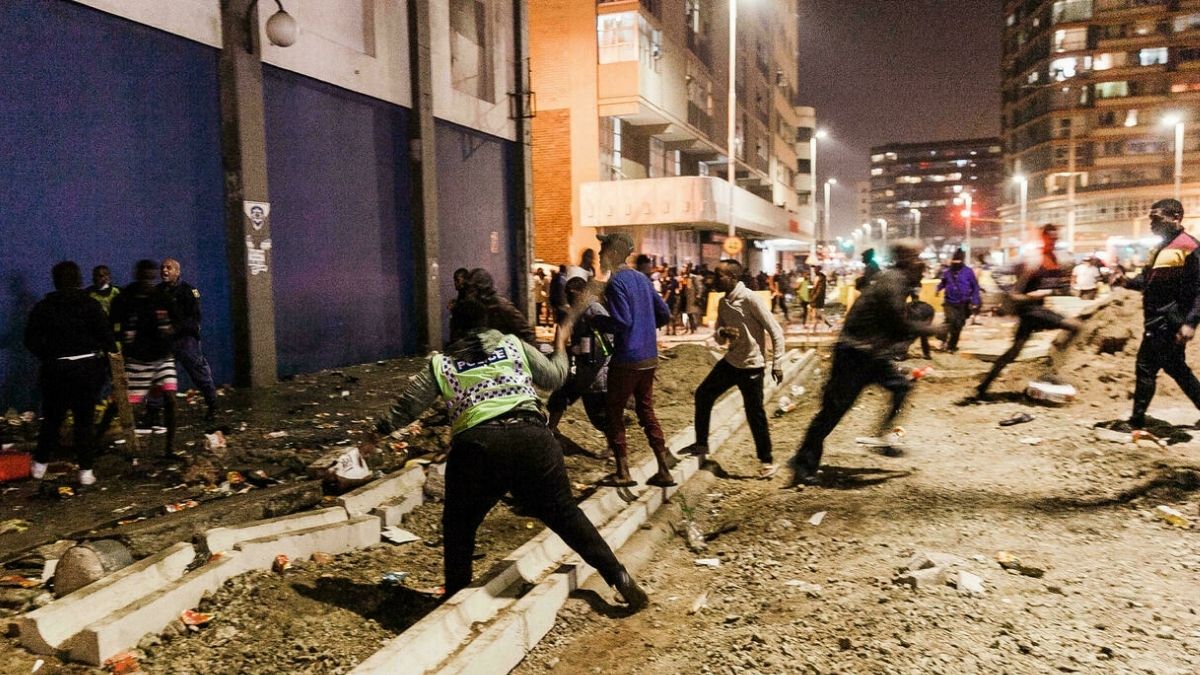South Africa’s army said it was deploying troops to two provinces, including its economic hub of Johannesburg, to help crush mob violence and looting as unrest sparked by the jailing of ex-president Jacob Zuma entered its fourth day.
Personnel will “assist law enforcement agencies deployed in Gauteng and KwaZulu-Natal provinces respectively to quell the unrest that has gripped both Provinces in the last few days,” the military said in a statement.
The violence raged as the Constitutional Court was reviewing a landmark decision to jail Zuma for contempt of court.
The country’s top court on June 29 slapped Zuma with a 15-month term for snubbing a probe into the corruption that stained his nine years in power.
Zuma began the sentence last Thursday but is seeking to have the ruling set aside.
“What we are saying is that this court made fundamentally rescindable errors,” Zuma’s lawyer Dali Mpofu argued in an on-line hearing before nine of the court’s 11 judges.
Zuma had been treated unfairly and his “right to mitigation was limited,” he said.
But one of the judges, Steven Majiedt, bluntly said Zuma had been convicted “because he disobeyed the order of this court.”
Despite his reputation for graft and scandal, the 79-year-old former anti-apartheid fighter remains popular among many poor South Africans.
The epicentre of the unrest is Zuma’s home region, the southeastern province of KwaZulu-Natal.
Shortly before the military’s announcement, troops were seen on the streets of its capital Pietermaritzburg and smoke billowed from the roof of a large shopping mall.
A retail shop in Durban was looted Monday morning while in Eshowe, a town near Zuma’s Nkandla home, police fired rubber bullets to disperse crowds after a supermarket was ransacked.
By Monday evening, at least 10 people had been killed, including a security guard, and police had arrested nearly 500 others.
Sections of a major highway were closed.
Some of the protests appear to have been triggered by Zuma’s detention, but they are also associated with grinding unemployment and hardship inflicted by a toughening of anti-COVID measures.
Under the terms of his sentence, Zuma could be back home before Christmas as he would be eligible for parole in less than four months.
He separately faces 16 charges of fraud, graft and racketeering in an arms procurement scandal dating to 1999, when he was vice president.












